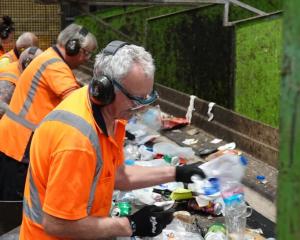
A group of 30 teenagers - some as young as 13 - are believed to be responsible for stealing more than 100 cars of this brand since January.
The Mazda theft phenomenon first appeared in Taranaki in November and December, when up to 30 were stolen.
Since the start of the year, a total of 200 vehicles have been taken in the province - 108 of them Mazdas, many of the type usually referred to as "nana cars".
Taranaki crime prevention manager Senior Sergeant Kyle Davie said it appeared the young people - some of who were repeat offenders - were trying to make a name for themselves.
"We understand there is some link to social media and that videos of the offending are being posted on to various social media platforms which is potentially something to do with those young people gaining notoriety."
Police were aware of videos being posted on Snapchat and have also had reports of them appearing on the TikTok platform, Davie said.
He urged Mazda owners to be vigilant.
"We can't be 100 percent sure why they should be targeting Mazdas, but we believe it's because there is a perception that they are easy to break into and to interfere with the ignition wiring to get them going, which is known as hot-wiring, and that's why we tend to think these Mazdas are being taken."
The most commonly stolen Mazdas are the Demio, Familia and Atenza models.
An Oakura mother - whom RNZ agreed not to identify - said she felt guilty when her daughter's Mazda was stolen from outside the family home recently.
"We had been actually moving our cars around and blocking her Mazda in because we knew they were targeting all Mazdas, but like, she came home late, we didn't think about it and didn't block it in and of course next morning it wasn't there when we got up.
"So for me I felt quite guilty about not blocking it in because I hadn't thought of it and then I thought I shouldn't have to be blocking a car in."
Police recovered the car within 48 hours but it was badly damaged.
"They'd obviously been using it for burn ups. They even changed a tyre because they'd obviously blown a tyre and then put the spare on and continued. They took the headlights, the front bumper was on the back seat and it was basically scratched up, beaten up and written off."
The woman said her daughter had been left out of pocket due to the hefty excess on her insurance.
And the Mazda theft phenomenon was not confined to Taranaki either.
New Plymouth businessman Shaun Conaglen said his daughter's Mazda was stolen from outside her flat in Palmerston North where she was studying.
It was the first car she'd ever owned.
"She'd worked a good year to save up and buy that car. We didn't give her anything. She paid for that out of her own pocket.
"She'd been working after school at the diner and other odd jobs here and there and saved up all the money so she had a car to come back and forth to uni.
"She was really upset because she'd never been through anything like that."
Conaglen thought it was surprising that nana-style cars were being targeted.
"Yeah it it is. It just seems to be just old Mazdas they're after. Like the Demios and the cars from the 90s and early 2000s seem to be hot property and all Mazdas."
Meanwhile, police in Taranaki had been placing flyers on Mazdas warning owners that they were being targeted.
There were simple steps people could take to prevent themselves becoming victims, Davie said.
"We're talking to them about keeping their cars secure, using immobilisers or putting alarms in their cars or parking in such a place that it's less likely to be offended against. Putting steering locks on it and making sure it's locked.
"A lot of the cars are unlocked. We do have a bit of a poor habit in Taranaki particularly for leaving our vehicles and our houses unlocked."
Given the age of the offenders, the overarching principle for police was safeguarding their well-being, Davie said.
So while some were going through the Youth Court process, others were being dealt with via family conferences and other measures with the aim of them ultimately becoming responsible citizens.












